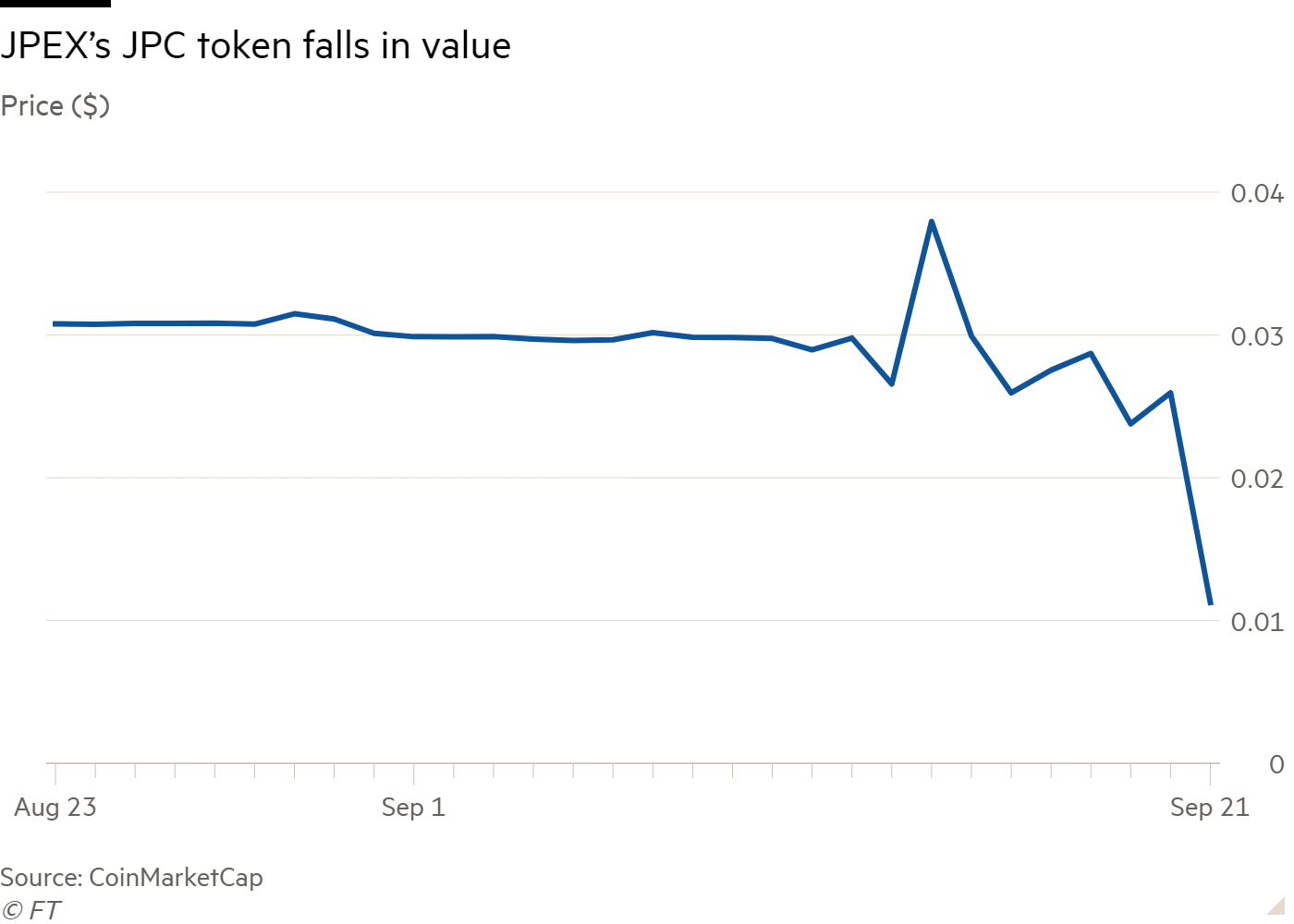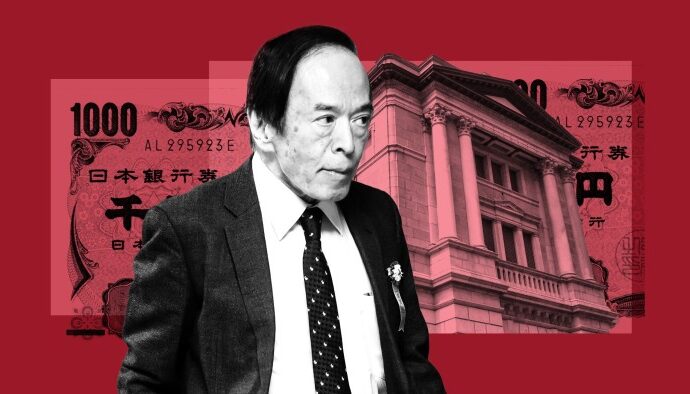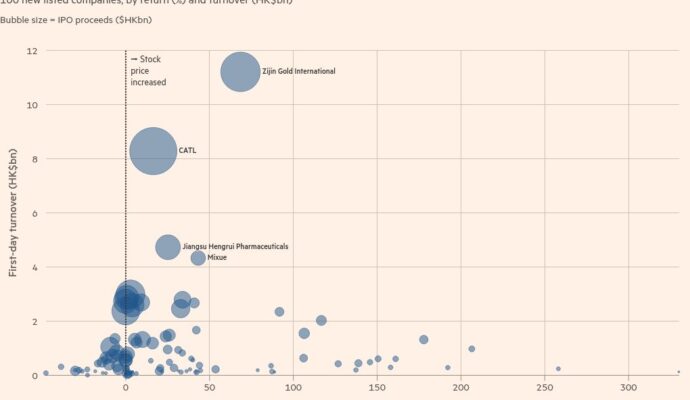Receive free US updates
We’ll send you a myFT Daily Digest email rounding up the latest US news every morning.
This article is an on-site version of our FirstFT newsletter. Sign up to our Asia, Europe/Africa or Americas edition to get it sent straight to your inbox every weekday morning
Good morning. We start today with the latest twist in the saga of China’s former foreign minister, Qin Gang, who mysteriously disappeared in June a month before he was ousted.
A high-profile Chinese television presenter who was in a relationship with Qin had a child last year with the help of a surrogate mother in the US, people familiar with the matter have said.
Fu Xiaotian, 40, told a close associate about the surrogate pregnancy last year, the person told the Financial Times. Two other people familiar with the matter also said she had a child via a surrogate. Surrogacy is illegal in China.
Chinese authorities are scrutinising the relationship between Qin and Fu, said two separate people familiar with the matter, although it remains unclear how central it was to his sudden disappearance in June and his ousting as foreign minister a month later.
China’s foreign ministry website describes Qin as “married with a son”. President Xi Jinping has repeatedly emphasised that top officials’ family lives “are an important reflection of senior officials’ work performance”.
Read the full story on the deepening mystery around China’s missing diplomat.
Here’s what else I’m keeping tabs on today:
Toshiba takeover: A consortium led by Japan Industrial Partners is set to take over the troubled Japanese industrial conglomerate, paving the way for it to be delisted. (Associated Press)
Economic data: Germany has the GfK Consumer Climate survey and the US reports monthly durable goods orders.
Spain: A parliamentary vote is expected to confirm that the conservatives are unable to form a government following an inconclusive July general election. If their effort falls short, it would open a path to another term for acting prime minister Pedro Sánchez via a potential amnesty deal with Catalan separatists.
Five more top stories
1. US regulators have sued Amazon, alleging the online retailer illegally uses monopoly power to overcharge consumers, hobble competitors and exploit sellers on its marketplace. The Federal Trade Commission and 17 states accuse the $1.3tn ecommerce giant of increasing fees to sellers on its marketplace so that it extracts almost $1 in every $2 they make. The lawsuit is one of the biggest tests yet of FTC chair Lina Khan’s more aggressive enforcement stance towards Big Tech.
More US news: Joe Biden became the first sitting US president to join a picket line, telling striking carworkers on Tuesday that “unions built the middle class”.
Janan Ganesh: The FT columnist on what the world should expect from a second Trump administration, including a possible surprise on China.
2. JPMorgan Chase said it had agreed settlements with the US Virgin Islands and Jes Staley to resolve legal battles over its dealings with Jeffrey Epstein’s human trafficking operation. The settlements aim to draw a line under damaging lawsuits that have revealed details of JPMorgan’s ties to the late sex offender and led to its chief executive Jamie Dimon being questioned for several hours under oath this year. Here are the details on the agreements.
3. Tesla and European carmakers that export from China to the EU are set to come under scrutiny as the bloc probes whether the country’s electric vehicles industry is receiving unfair subsidies, said Brussels’ most senior trade official. There was “sufficient prima facie evidence” to justify the probe into imports from China of battery-powered vehicles, EU trade chief Valdis Dombrovskis told the FT at the conclusion of a five-day trip to Beijing.
4. Saudi Arabia’s new ambassador to the Palestinian Authority has made his first visit to the occupied West Bank, amid a US-led effort to broker a complex deal that would normalise Riyadh’s ties with Israel. Nayef bin Bandar al-Sudairi’s appearance in the West Bank coincided with the first official trip to Saudi Arabia by an Israeli minister, as tourism minister Haim Katz arrived in the Gulf state to participate in a UN conference. Here’s more on the accelerating diplomatic activity.
5. One of South Korea’s top financial regulators is optimistic of inclusion this month in a key world bond index. Lee Bok-hyun, governor of the Financial Supervisory Service, said he believed Seoul has met most of the conditions required by FTSE Russell to be included in its World Government Bond Index, a market gauge expected to provide a boost of up to $67bn in foreign capital inflows.
Deep dive

The small Japanese town of Kikuyo has been radically transformed since Taiwan Semiconductor Manufacturing Company began construction of its first factory in Japan five months ago. What locals have dubbed “the TSMC shock” could revive the region as a global semiconductor hub. But the arrival of the world’s largest chipmaker is also posing problems for the local economy, the FT’s Kana Inagaki reports.
We’re also reading . . .
A hidden US-China decoupling: Private equity firms are becoming the arbiters of a competing set of demands from investors whose interests are political, writes Kaye Wiggins.
Media: Many had thought Bob Iger was preparing to jettison Hulu, the streaming service, when he returned to Disney. But three months on, the stage is set for Disney to take full ownership.
Avoiding the Japan trap: China must make revolutionary changes in income distribution and the priorities of government, writes Martin Wolf.
Chart of the day
Hong Kong’s investigation into cryptocurrency group JPEX, or Japan Exchange, for alleged fraud is testing the city’s commitment to a rigorous but crypto-friendly regime. Meanwhile, the price for JPC, JPEX’s in-house cryptocurrency, fell 67 per cent in a week as of Friday, according to CoinMarketCap.

Take a break from the news
An inevitable part of collecting, the late antiques dealer and interior designer Robert Kime once observed, is that it is often necessary to “sell something to get something better”. But where to sell your items, and how? FT fashion editor and collector Lauren Indvik lays out your options.

Additional contributions from Tee Zhuo and Gordon Smith

